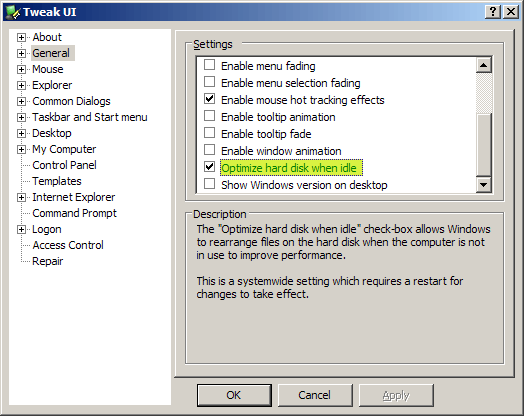The Windows task scheduler will run what ever you schedul it to run when you schedule it to run, it sounds to me like you are just wondering:
IF windows is running something while you are away
rather than:
windows IS running something while you are away
Or atleast that is how I read your question, to answer my interpretation I don't believe there is anything that windows is doing; obviously the computer will go into some what of a 'sleep' state or "System Idle Process" if you will were it just sits there and twiddles it's thumbs.
My theory on the return to active duty delay (which most of us probably encounter) is that windows has to figure out where it left off especially if you left programs running and if they are 'heavy' programs at that it has to check all the RAM data and the exe's read HD's figure out graphics settings as it changes over from screen saver to the UI; your probably entering your password for user login so it has to check all that,
The list goes on, simply saying that even though all these sound simple (especially for a computer that has electrons flowing at the speed of light) however it still takes time; plus as the system sits idle it builds up heat heat slows the system down and so on.
Well that's my two cents worth, no official knowledge behind this one just a theory.

It might be easier to just set it to turn the drives off “Never” and then see if the delay still happens. – Synetech – 2012-02-24T03:05:14.127
If turning off the harddisk, why it would slow the windows? Cause i think that all my application running should be still in my RAM... – Kit Ho – 2012-02-24T03:08:24.470
Yes, but when you start using the computer again, the hard-drive is very likely to need to be used, so if Windows turned it off to save power, then it has to turn back on. This can take ~10 seconds for it to spin up and re-initialize. – Synetech – 2012-02-24T03:19:37.290
@KitHo besides (I suppose as mentioned) time for them to spin up.. it's also some may be in virtual memory(so on hard drive) if you have a lot open. Infact, here's kind of a theory not so relevant perhaps, but maybe if apps aren't used for a while they could get sent into virtual memory. – barlop – 2012-02-24T03:36:02.200